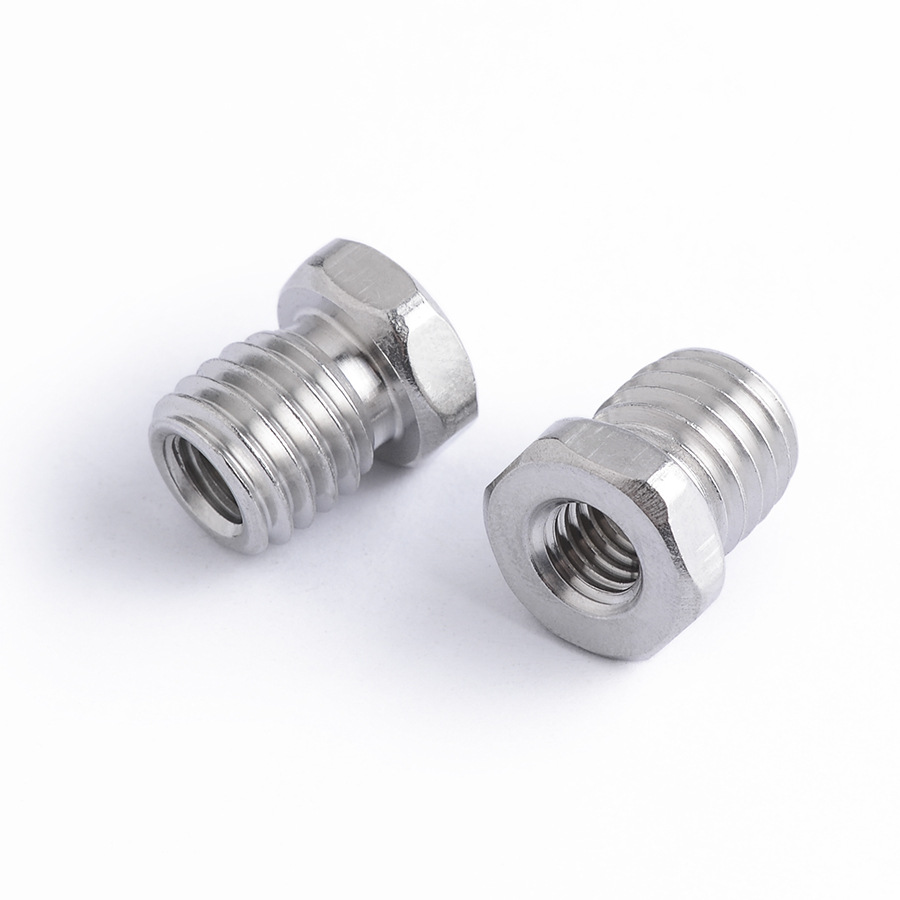How to Choose the Surface Treatment Process for Fasteners
Choosing which surface treatment to use is a problem that every designer faces. There are many types of surface treatments to choose from, and not only should the economy and practicality of the design be considered, but also the processability of the assembly and even environmental protection requirements should be taken into consideration. The following is a brief introduction to some commonly used coatings for fasteners based on the above principles for reference.So, I believe non-standard fasteners price In the future, it will be promising to create a miracle belonging to the industry. https://jieruifasteners.com/
1. Electrogalvanizing
Electrogalvanizing is the most commonly used coating for commercial fasteners. It is relatively cheap and looks good. Common colors include black and military green. However, its anti-corrosion performance is average, and its anti-corrosion performance is the lowest among zinc plating (coating) layers. Generally, the neutral salt spray test of electrogalvanizing is within 72 hours. Special sealants are also used to make the neutral salt spray test reach more than 200 hours, but the price is expensive, which is 5 to 8 times that of general galvanizing. The torque-preload consistency of electrogalvanized fasteners is poor and unstable, and is generally not used for connections in important parts. In order to improve the torque-preload consistency, the method of applying lubricating substances after plating can also be used to improve and improve the torque-preload consistency.
2. Phosphating
A basic principle Phosphating is cheaper than galvanizing, but its corrosion resistance is worse than galvanizing. Oil should be applied after phosphating, and its corrosion resistance is greatly related to the performance of the oil applied. For example, after phosphating, applying general anti-rust oil, the neutral salt spray test is only 10 to 20 hours. Applying high-grade anti-rust oil can last for 72 to 96 hours. But its price is 2 to 3 times that of general phosphating oiling.
There are two common types of non-standard fasteners phosphating, zinc phosphating and manganese phosphating. Zinc phosphating has better lubrication performance than manganese phosphating, and manganese phosphating has better corrosion resistance and wear resistance than galvanizing. Its operating temperature can reach 225 degrees to 400 degrees Fahrenheit (107 to 204 degrees Celsius). Especially for the connection of some important parts. Such as the connecting rod bolts and nuts of the engine, cylinder heads, main bearings, flywheel bolts and wheel bolts and nuts. Phosphating high-strength bolts can also avoid hydrogen embrittlement problems, so in the industrial field, bolts above grade 10.9 are generally treated with phosphating surface treatment.
3. Oxidation blackening
Blackening + oiling is a very popular coating for industrial fasteners because it is the cheapest and looks good before the oil runs out. Since blackening has almost no anti-rust ability, it will rust quickly after oiling. Even in the presence of oil, the neutral salt spray test can only reach 3 to 5 hours.
4. Electroplating cadmium
Cadmium coating has good corrosion resistance, especially in marine atmospheric environment, its corrosion resistance is better than other surface treatments. The waste liquid treatment cost in the process of electroplating cadmium is high, and its price is about 15~20 times that of electroplating zinc. Therefore, it is not used in general industries and is only used in some specific environments. For example, it is used for non-standard fasteners for oil drilling platforms and HNA aircraft.